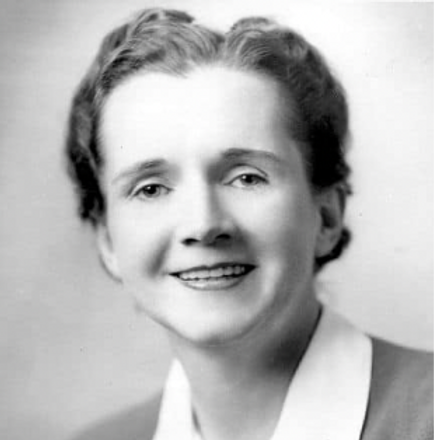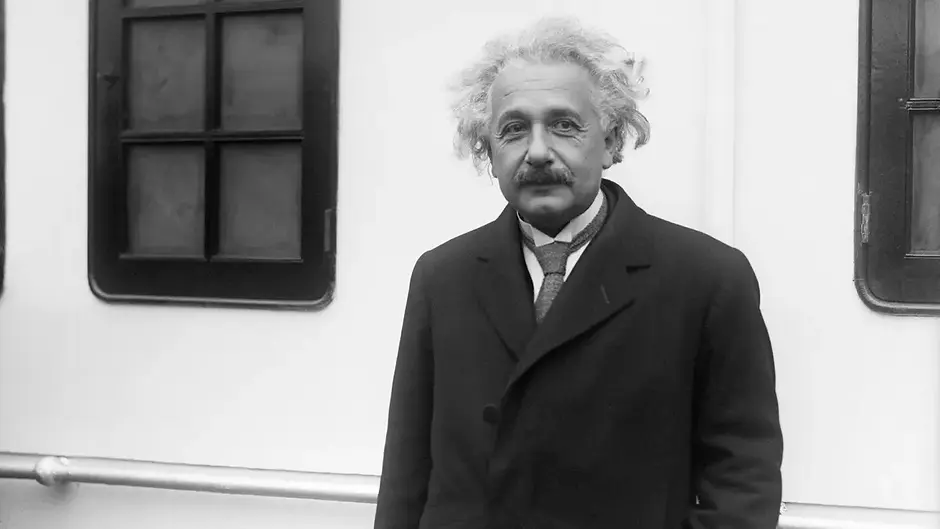HEROES
& ROLE MODELS

Rachel Carson
Rachel Carson, an American marine biologist and environmental visionary, profoundly resonates as a role model for Mystrikism through her pioneering contributions to the environmental movement. Her seminal work, Silent Spring, published in 1962, exposed the detrimental effects of pesticides on the environment and fundamentally shifted public awareness and policies concerning ecological preservation and chemical usage.
Carson’s career was grounded in careful observation and rigorous science, which aligns perfectly with Mystrikism's commitment to honesty and reality. Her meticulous research into the harmful effects of DDT and other pesticides not only sparked widespread public and scientific debate but also catalyzed the modern environmental movement. This movement closely parallels Mystrikism's ethos of advocating for an informed and respectful engagement with the natural world, reflecting a shared belief in the importance of empirical evidence and scientific method in understanding and protecting our environment.
One of Carson's enduring legacies is her ability to articulate the complex relationships within ecosystems in a way that is both accessible and compelling. Her quote, "In nature, nothing exists alone," serves as a profound reminder of the interconnectedness that Mystrikism emphasizes, the understanding that every element within the ecosystem is part of a larger, integrated whole. This perspective challenges individuals to consider the broader implications of their actions on the environment, encouraging a holistic and considerate approach that is essential to Mystrikism’s teachings.
Carson also profoundly appreciated the aesthetic and "spiritual" qualities of the natural world, which she believed were essential for human health and happiness. She wrote, "It is a wholesome and necessary thing for us to turn again to the earth and in the contemplation of her beauties to know the sense of wonder and humility." This reflection highlights the Mystrikism view of finding transcendent moments in natural beauty, fostering a deep emotional and ethical connection to the environment that goes beyond mere scientific interest.
Moreover, Carson's advocacy led to transformative changes in national and international environmental policies, underscoring her role as a catalyst for enduring societal change. Her work exemplifies the Mystrikism principle of kindness, as her efforts were ultimately aimed at ensuring the health and wellbeing of both the environment and the people living within it. Through her writings and activism, she demonstrated how individual dedication to truth and integrity can lead to significant global impacts.
Selecting Rachel Carson as a role model for Mystrikism is rooted in her exemplary embodiment of the community’s values, her scientific rigour, her profound connection to nature, and her unwavering commitment to educating the public about environmental issues. Her life and work inspire members of the Union of Mystriks to approach environmental challenges with diligence, respect, and a deep commitment to understanding the natural processes that govern our world. Carson’s legacy continues to motivate a thoughtful and comprehensive approach to environmentalism, mirroring Mystrikism’s vision of a harmonious and scientifically enlightened interaction with the natural world.

Bertrand Russell
Bertrand Russell, an eminent British philosopher, logician, and social critic, epitomises a quintessential role model for Mystrikism with his profound intellectual contributions and fervent advocacy for social justice and peace. Russell's work spans various disciplines, but he is mainly celebrated for his influence on analytic philosophy and steadfast commitment to humanitarian ideals.
Russell’s philosophy and public life were deeply intertwined with Mystrikism’s core values of reality, honesty, and humility. His advocacy for logic and the scientific approach in understanding the world aligns seamlessly with Mystrikism's emphasis on a reality understood through empirical evidence rather than supernatural belief. He championed the cause of peace and human rights, reflecting Mystrikism’s principle of kindness through his efforts to resolve global conflicts and reduce human suffering.
Throughout his life, Russell was a vocal proponent of the empirical method, insisting on the importance of scepticism and critical thinking. His assertion that "The whole problem with the world is that fools and fanatics are always so certain of themselves, and wiser people so full of doubts" captures the essence of Mystrikism’s value of humility. This perspective encourages followers to embrace the universe’s complexity with open-mindedness and continually question established truths in pursuit of deeper understanding.
Russell’s approach to ethics and the good life was grounded in a rationalist view, where he famously stated, "The good life is one inspired by love and guided by knowledge." This quote reflects the Mystrikism directive that life should be lived with love and guided by rational thought, promoting a balanced approach to personal and societal well-being. He also articulated the value of living without fear, suggesting that "To fear love is to fear life, and those who fear life are already three parts dead," which encourages a fearless engagement with life’s experiences, resonant with Mystrikism's call to embrace life fully and humbly.
Moreover, Russell's significant contributions to the philosophy of language and mathematics underscore his innovative and rigorous intellectual spirit. His work expanded the boundaries of human knowledge and demonstrated how intellectual exploration can lead to practical and ethical advancements, echoing Mystikism's admiration for the unknown and the power of human curiosity.
Selecting Bertrand Russell as a role model for Mystrikism is based on his exemplification of the community’s ideals, his relentless pursuit of truth, his intellectual courage, and his ethical commitment to using knowledge for the betterment of society. His teachings and life story continue to inspire those within the Union of Mystriks to question boldly, live ethically and appreciate the profound complexity of the cosmos through a lens of scientific inquiry and philosophical reflection. Russell’s legacy is a beacon for anyone in Mystrikism seeking to navigate the vast, intricate realities of our universe with integrity and insight.

Albert Einstein
Albert Einstein, renowned as one of the greatest physicists in history, personifies an ideal role model for Mystrikism with his revolutionary contributions to our understanding of the universe and his vocal advocacy for peace and humanitarian issues. Best known for his theory of relativity, which transformed our comprehension of space, time, and gravity, Einstein's work has profound implications for the natural understanding that Mystrikism values so highly.
Einstein's approach to science was deeply rooted in Mystrikism’s core values of reality and honesty. He pursued his scientific inquiries with relentless dedication to empirical evidence and logical reasoning. His famous equation, E=mc2, provided a new understanding of energy and mass and demonstrated the universe’s interconnectedness, aligning with Mystrikism's recognition of the intricate relationships within the cosmos.
A man of profound intellectual humility, Einstein was aware of the limits of human understanding and the vastness of the unknown, often expressing awe and reverence for the mysteries of the universe. His quote, "The most beautiful thing we can experience is the mysterious. It is the source of all true art and science," reflects the Mystrikism value of humility and the natural "spirituality" that arises from a deep appreciation of the cosmos.
Einstein's thoughts on the interconnectedness of all life and his philosophical musings on science and religion resonate deeply with Mystrikism. His statement, "A human being is a part of the whole called by us universe, a part limited in time and space.", mirrors the Mystrikism view that all life is interconnected and that our separateness is an illusion. This fosters a holistic view of humanity’s place within the natural world, aligning with Mystrikism’s recognition of the intricate relationships within the cosmos.
In addition to his scientific achievements, Einstein's ethical and social philosophy reflects Mystrikism’s principles. He was an outspoken advocate for civil rights and a proponent of social justice, often using his platform to speak against oppression and promote peace. His activism and moral philosophy, emphasising individual responsibility and the welfare of humanity, align with Mystrikism’s directive of kindness and ethical engagement with the world.
Selecting Albert Einstein as a role model for Mystrikism is grounded in his embodiment of the community's values, his scientific genius, his philosophical depth, and his humanitarian spirit. His legacy encourages followers of Mystrikism to explore the universe with curiosity, respect, and a profound sense of ethical responsibility. Einstein's life and work inspire members of the Union of Mystriks to engage with the natural world and each other in a manner that is informed by both scientific understanding and compassionate consideration.

Sam Harris
Sam Harris, a contemporary philosopher, neuroscientist, and author, serves as an intriguing role model for Mystrikism, mainly due to his rigorous approach to exploring consciousness, morality, and the human condition through both scientific and philosophical lenses. Harris's work, which spans topics from artificial intelligence to meditation, aligns well with Mystrikism's values of reality, honesty, humility, and a deep appreciation for the natural world.
Harris's advocacy for reason and empirical evidence as the foundations for understanding reality resonates strongly with Mystrikism's emphasis on the Scientific Method. His commitment to using science and rationality to explore ethical and philosophical questions reflects Mystrikism's dedication to honesty and integrity in pursuing knowledge. Harris has often emphasised the importance of acknowledging what we do not know, which aligns with Mystrikism's value of humility. He famously argues for the necessity of admitting uncertainty, stating, "The presence of doubt, when faced with the vast mystery of the universe, is the only rational posture."
Harris’s explorations into the nature of consciousness and the ethics of well-being through scientific inquiry and meditative practice offer a unique and enlightening perspective. This perspective bridges the gap between empirical research and personal experience, mirroring Mystrikism’s view on finding naturally transcendent moments that enhance our understanding of ourselves and our place in the universe. Harris’s work on meditation and mindfulness underscores this connection, advocating for a deep, experiential understanding of the mind that aligns with Mystrikism’s naturalist form of 'spirituality.'
Furthermore, Harris's stance on moral and social issues, advocating for human rights and intellectual freedom, echoes Mystrikism's principle of kindness. He argues for a moral landscape where science can determine human values, proposing that human well-being entirely depends on events in the world and on states of the human brain. Thus, his approach to ethics is grounded in the well-being of conscious creatures, advocating for actions that support flourishing and minimise suffering.
Choosing Sam Harris as a role model for Mystrikism is based on his unwavering commitment to exploring profound questions about human existence. His approach, informed by science, free from dogma, and open to new insights, stimulate intellectual curiosity and encourages followers of Mystrikism to engage deeply with philosophical and scientific inquiries. This engagement fosters a greater understanding of the natural universe and the human experience within it. Harris's blend of scientific rigour and philosophical inquiry exemplifies the Mystrikism ethos of pursuing truth and wisdom through a careful, reasoned understanding of reality.

Marcus Aurelius
Marcus Aurelius, revered as a Roman emperor and Stoic philosopher, is an exemplary role model for Mystrikism. His philosophical work, notably in "Meditations," champions the Stoic ideals of self-mastery, rationality, and virtue, principles that resonate deeply with Mystrikism's commitment to honesty, reality, and humility.
Aurelius's writings advocate for understanding the world as it truly is, free from the distortions of personal bias or irrational fears. This pursuit of truth through reasoned thought aligns with Mystrikism's dedication to a reality understood through empirical evidence and rational inquiry. His reflections encourage a life guided by ethical considerations and personal integrity, emphasising the importance of actions that benefit the greater community.
His stoic belief in living according to nature and accepting what life offers without undue distress mirrors Mystrikism’s ethos of embracing the universe's inherent beauty and complexity. Aurelius’s focus on internal virtue and external kindness promotes a model of leadership that is both compassionate and pragmatic, embodying the Mystrikism value of kindness in every action.
Marcus Aurelius’s legacy as a thinker and leader who valued wisdom, justice, and the common good makes him a profound exemplar for the Union of Mystriks. His teachings inspire personal resilience and ethical conduct and foster a deeper appreciation for the interconnectedness of all beings, encouraging a harmonious and thoughtful engagement with the world.
